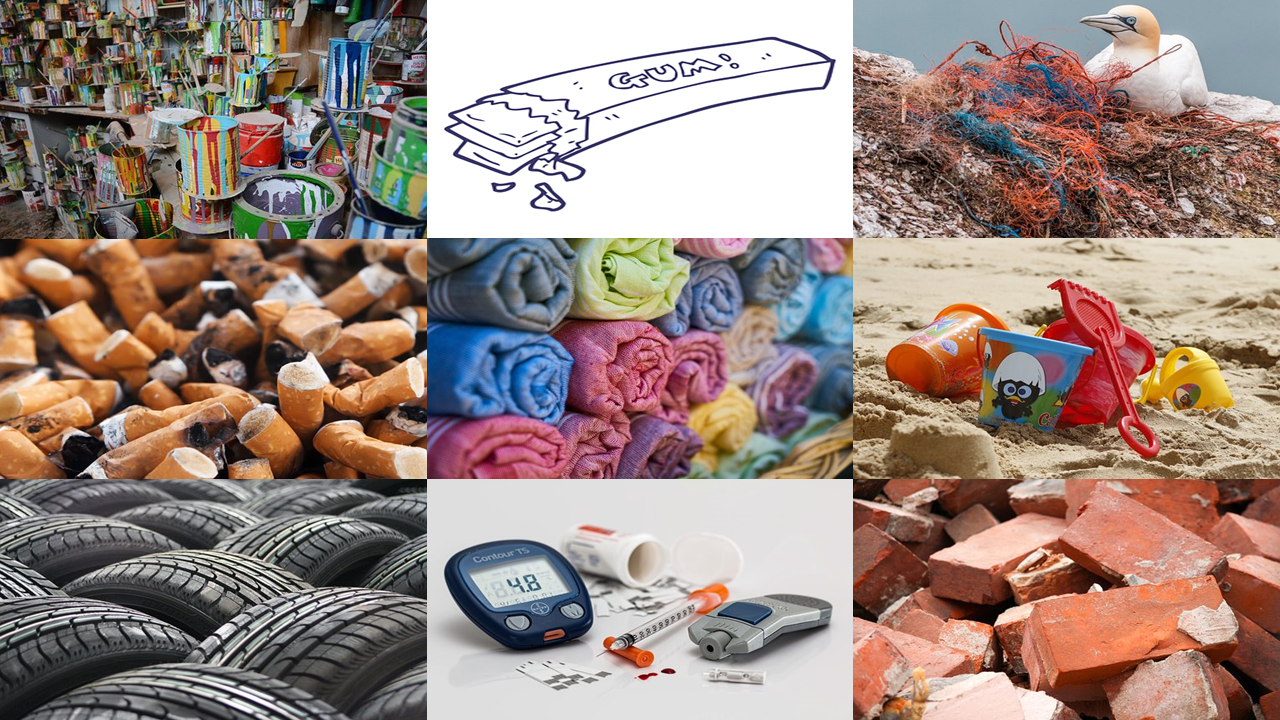EPR beyond packaging, electronics and batteries
by Annis Mapleston at 19:36 in Circular Economy, Environmental
When talking about extended producer responsibility (EPR), most people will focus on packaging, waste electronics and electrical items (WEEE) and batteries. But many countries have (or are planning) EPR requirements that extend far beyond these three categories.

Tyres and vehicle lubricants
Canada in particular has a significant number of EPR requirements linked to the automotive industry, covering products including tyres, used oils and antifreeze. Containers for these products (often excluded in packaging EPR schemes as containing hazardous waste) are typically also covered.
Paint
Many Canadian provinces also have EPR legislation in place that covers paint (including varnish and aerosols). Rules in the different provinces are similar but not identical, and fees are set individually as well.
Textiles
In recent years, several European markets are beginning to introduce EPR legislation covering household textiles and clothing. France and the Netherlands are the front-runners, with the French legislation covering all clothing, shoes and certain household products such as cushion covers, towels and bedding.
Textiles EPR can be expected to become significantly more common within the EU, as the European Commission has recently adopted a strategy for sustainable and circular textiles which calls for harmonisation of rules across the EU.
Printed paper
A number of markets incorporate printed paper into their packaging EPR schemes. This typically covers products such as magazines, leaflets, vouchers and sometimes instruction manuals.
Other (less common) categories
Some markets have taken the concept of EPR even further. Under legislation published in 2020, France has either implemented or intends to introduce EPR streams for 22 product categories including:
- Construction materials
- Unused medications
- Children's toys and games
- Sport and leisure equipment
- DIY and garden tools
- Chewing gum
- Fishing gear
Given how effective EPR can be, it would not be surprising to see more markets following France's example and extending the reach of their EPR legislation.
If you believe you may be affected by any of these broader EPR categories, and wish to know more, one of our consultants would be happy to discuss the topic with you.
 Click here to receive regular updates on blog posts, webinars, and regulatory changes directly to your inbox
Click here to receive regular updates on blog posts, webinars, and regulatory changes directly to your inbox

